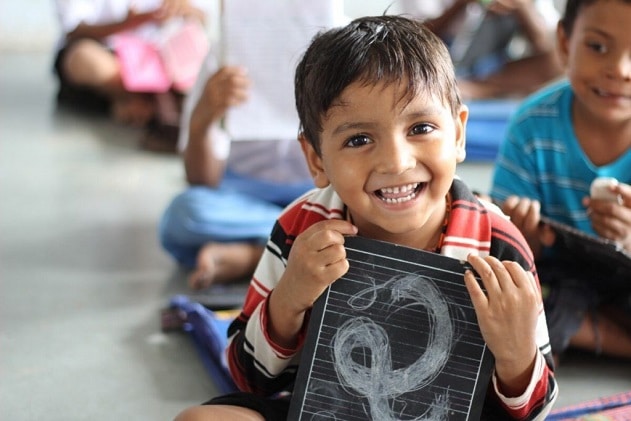Indian Education System Essay – Challenges and Reforms

Indian Education System Essay
The Indian Education System Essay is one of the most ancient in the world, with a rich history dating back thousands of years. However, in today’s fast-paced global environment, it has come tgtube under scrutiny for not keeping up with modern advancements in education. While India has produced numerous brilliant minds who have made significant contributions across various sectors globally, the current education system continues to face several challenges that hinder its ability to evolve and support the holistic development of students.
Here, I explore the key challenges facing the Indian education system and the much-needed reforms to create a more robust and future-ready framework for tomorrow’s students.
Key Challenges in the Indian Education System
The Indian education system has faced numerous obstacles that have prevented it from fully evolving. The following table outlines some of the key challenges currently plaguing the system:
| Challenges | Description |
| Outdated Curriculum | The syllabus must be updated, neglecting contemporary fields such as technology, coding, and environmental studies. |
| Theory-Based Learning | The education system heavily emphasizes theory, leaving little room for practical knowledge and hands-on learning. |
| Flawed Grading System | Student evaluations focus primarily on written exams, ignoring creativity, critical thinking, and problem-solving skills. |
| Lack of Skill Development | The system must adequately promote vocational and practical skills, leaving students unprepared for the workforce. |
| Poor Infrastructure | Many schools, especially in rural areas, lack basic amenities such as laboratories, libraries, and digital tools, hindering the learning process. |
Overemphasis on Theoretical Knowledge
One of the biggest flaws in the Indian education system is its over-reliance on theoretical knowledge. The curriculum focuses heavily on textbook learning, with little attention to practical, hands-on experiences. This imbalance results in a significant gap between what students learn and how they apply it in real-world scenarios.
For example, engineering, science, or commerce students may excel in exams but need more practical exposure to implement their knowledge in actual projects or real-life situations. This challenge becomes particularly evident when students enter the workforce and find that their academic knowledge needs improvement to succeed in their jobs.
Outdated Curriculum and Learning Methods
The Indian education system’s curriculum is long overdue for an overhaul. In many parts of the country, schools still follow a syllabus that has remained largely unchanged for decades. This outdated approach to education fails to prepare students for modern challenges, particularly in fields such as technology, artificial intelligence, data science, and entrepreneurship.
The learning methods commonly used also rely on rote memorization. Students are often encouraged to memorize facts and formulas rather than understand concepts and develop critical thinking skills. This teaching approach results in poor retention of knowledge and inability to think creatively or solve complex problems. Modern educational systems worldwide are shifting toward teaching methods that encourage innovation, but the Indian education system lags in this respect.
Grading System Focused on Marks
The grading system in India is another major challenge. Students are judged primarily based on their performance in written examinations, which can lead to undue pressure on students to achieve high scores at the expense of holistic development. This one-size-fits-all grading approach needs to recognize diverse talents in students, such as their creativity, leadership potential, or problem-solving abilities.
Instead of focusing on conceptual understanding and personal growth, students are often compelled to “mug up” or memorize material to perform well in exams. This obsession with grades stifles curiosity and discourages students from pursuing fields of study that they might be truly passionate about, but that might not guarantee high marks.
Lack of Focus on Skill Development
In today’s rapidly evolving world, skill-based learning is essential to ensure students are well-equipped for the workforce. Unfortunately, the Indian education system still prioritizes academics over practical skills. Most students graduate without the skills required for their careers, such as critical thinking, communication, teamwork, and creativity.
Here is a comparison between the current education system and a reformed, skill-based education model that focuses on preparing students for future job markets:
| Current Education System | Proposed Skill-Based Education Model |
| Focus on Marks and Exams | Focus on Practical Skills, Innovation, and Critical Thinking |
| Theoretical Learning Dominates | Balanced Approach with Practical Learning and Experiential Education |
| Little to No Vocational Training | Incorporation of Vocational and Career-Oriented Training Programs |
| Minimal Industry Interaction | Industry Partnerships for Internships, Mentorships, and Hands-On Projects |
| Uniform Curriculum for All Students | Flexible Curriculum that Adapts to Students’ Talents and Interests |
Insufficient Infrastructure and Teacher Quality
One of the most pressing issues in the Indian education system is the poor infrastructure in many schools and colleges, particularly in rural and underserved areas. Many educational institutions need more essential facilities such as libraries, laboratories, and internet connectivity, which are crucial for modern learning. Furthermore, such schools often need more qualified teachers, leading to a substandard learning environment.
Low teacher salaries also discourage talented professionals from entering the teaching field, resulting in a shortage of high-quality educators. Additionally, teachers often need more proper training in modern pedagogical methods, hampers their ability to engage students and foster a deeper understanding of the subjects being taught.
Minimal Extracurricular Activities
Extracurricular activities such as sports, music, arts, and theater play a pivotal role in developing a student’s personality. Unfortunately, the Indian education system tends to prioritize academic achievement at the expense of these crucial activities. Students often have limited access to physical education and creative outlets, with most of their time devoted to studying for exams.
Internationally, education systems that balance academics and extracurricular activities produce more well-rounded and successful individuals. Engaging in extracurricular activities helps students develop essential life skills such as teamwork, time management, and leadership, which are invaluable in their personal and professional lives.
Reforms Needed for the Indian Education System
To address the challenges mentioned above, it is imperative to initiate reforms that can transform the Indian education system into a more dynamic and effective model. These reforms must focus on updating the curriculum, incorporating skill-based learning, improving teacher training, and upgrading infrastructure.
Curriculum Modernization and Practical Learning
The first step in reforming the Indian education system is to update the curriculum to reflect current global trends and the needs of the modern job market. Schools and colleges must introduce subjects like coding, artificial intelligence, data science, and environmental studies to prepare students for the future.
Additionally, there must be a greater emphasis on practical learning. Students should be given opportunities to work on real-life projects, participate in internships, and engage in experiential learning. This shift from theoretical learning to hands-on application will help bridge the gap between academic knowledge and its practical use.
Promoting Skill Development
The Indian education system must place a stronger emphasis on skill-based education. This includes introducing vocational training, entrepreneurship programs, and skill development courses alongside traditional academic subjects.
| Traditional Education System | Benefits of Skill-Based Education |
| Academic Knowledge Focus | Prepares Students for Practical Careers and Real-World Challenges |
| Lacks Innovation and Creativity | Encourages Critical Thinking, Innovation, and Problem-Solving Skills |
| Standardized Learning Paths | Customized Learning Based on Students’ Strengths and Interests |
| Limited Job-Readiness | Improves Employability with Real-World Skills and Vocational Training |
Improving Teacher Quality and Compensation
The role of teachers is crucial to the success of any education system. Significant investment in teacher training programs in India is needed to improve the quality of teaching. These programs should focus on enhancing teachers’ skills in modern teaching methods, technology integration, and student engagement.
Moreover, improving teacher compensation is essential to attract and retain talented educators. Offering competitive salaries and better working conditions will ensure that teaching becomes desirable, drawing in individuals passionate about shaping the next generation.
Infrastructure Development
The government and private sector must invest in improving the infrastructure of schools and colleges to ensure that students have access to a conducive learning environment. This includes building state-of-the-art classrooms, digital learning tools, and well-equipped science labs. Schools must be provided with modern technology and internet access to facilitate better learning experiences, particularly in rural areas.
Encouraging Extracurricular Participation
Finally, the Indian education system must integrate extracurricular activities into the curriculum to ensure students’ overall development. Schools should actively encourage participation in sports, arts, music, and other creative endeavors. These activities help students build essential life skills and provide a much-needed balance to their academic pursuits.
FAQs on the Indian Education System
Q.1 What are the main challenges facing the Indian Education System Essay today?
A.1 The Indian education system faces multiple challenges, including an outdated curriculum, excessive focus on theoretical learning, poor infrastructure, lack of skill development, and a flawed grading system.
Q.2 How can we modernize the Indian Education System Essay?
A.2 Modernization can be achieved by updating the curriculum to include contemporary subjects like data science and AI, promoting practical learning, and focusing on skill development.
Q.3 Why is skill-based education important?
A.3 Skill-based education is essential because it equips students with practical skills and prepares them for real-world challenges, making them more employable and better suited for the workforce.
Q.4 How can infrastructure in Indian schools be improved?
A.4 Infrastructure can be improved by investing in modern classrooms, science labs, libraries, and digital tools. Providing internet access and modern learning technologies, especially in rural areas, is critical.
Q.5 Why should extracurricular activities be emphasized in education?
A.5 Extracurricular activities play a crucial role in overall personality development. They help students acquire life skills such as teamwork, leadership, and time management, essential for personal and professional success.
Wrapping Up
The future of the Indian Education System Essay</span> depends on addressing its current challenges and embracing reforms that promote a balance between academics, skill development, and extracurricular activities. By taking these necessary steps, India can build an education system that empowers students to excel in their careers and contribute positively to society.



